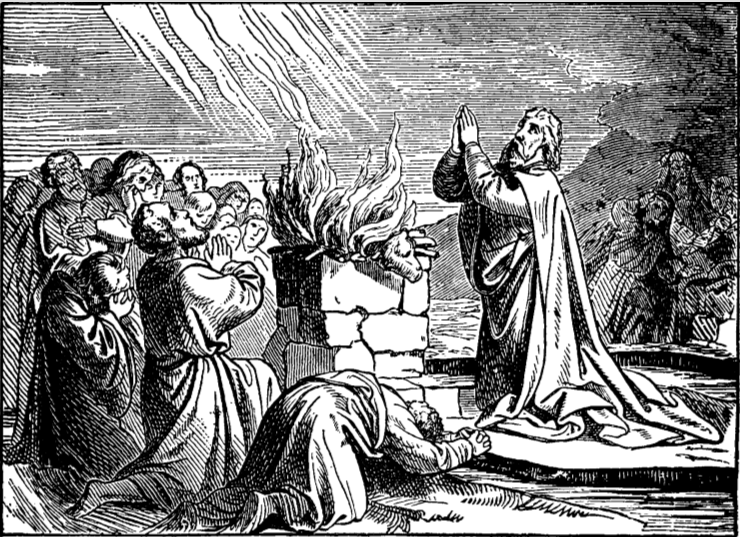The Significance of Easter
- David Nagai
- Mar 26, 2021
- 5 min read
Updated: May 18, 2021

Easter is the celebration of Jesus conquering death and giving hope to the world.
Whether or not you believe in the Christian God or that Jesus actually rose from the dead, understanding the story and its impact will help you empathize more deeply with the millions of Christians who do. The purpose of this article is to help you understand why many Christians believe what they believe and even give you a chance to reflect on the deeper meaning in life.
Who was Jesus?

Jesus was born 2,000 years ago to a poor Jewish family in what is now modern-day Israel. His birth is famously marked by the Christmas holiday. At around age 30, Jesus spent about three years teaching, healing, and announcing the “Kingdom of God,” which was basically a new vision for how to live in the world with justice, equality, and peace.
The things Jesus said and did were very controversial (disputed). The ways he interpreted the Jewish religious laws were different from most teachers.
Instead of focusing on rules, boundaries, and judgment, he emphasized forgiveness, compassion, inclusion, and love.
It was said that he also performed miracles where he would multiply food in order to feed thousands of hungry people, heal sick people, and even raise people from the dead. Such radical new ways of thinking and bringing life and freedom to people – especially the poor and vulnerable – gained him an increasingly large following as he travelled from town to town.
More and more Jews began to believe that Jesus was the chosen Jewish liberator (rescuer) – the one sent from God to save the Jewish people from their oppressors and from suffering.
The oppressor (dominating power causing suffering) at the time was the Roman government that was occupying (controlling, colonizing) their land. The Jewish term for this chosen liberator was “The Messiah” (deliverer, savior) or “The Christ” (anointed one). It was said in ancient prophecies (predictions) that the Messiah would represent God and reestablish God’s holy authority on earth.
Why was Jesus killed?
This popularity made both Jewish religious leaders, as well as the occupying Roman government feel nervous and undermined (threatened). They were afraid that his influence would lead to anarchy (chaos, revolution) and an uprising. Most Jewish leaders believed that Jesus was actually not the Messiah, but was a fraud (imposter, fake). Also, most people expected Jesus to use violence and force to reclaim God’s authority.
But, as we can see, the “Kingdom of God” that Jesus was promoting turned everything upside down.
In this kingdom, the poor were valuable, the outsiders were included, and a radical practice of nonviolence replaced the violent competition for power.

Therefore, the Jewish leaders, in collaboration with the Roman government, arrested Jesus, put him on trial for blasphemy (claiming he was God), and killed him like a criminal by crucifying him on a wooden cross. But even as he was dying he was reported to have proclaimed forgiveness for his killers.
His death was on a Friday (this is called Good Friday). Then they buried him in a tomb, but on Sunday (called Easter Sunday), he was said to have risen from the dead, which is called resurrection. In fact, the modern day Easter egg is a symbol of Jesus breaking out of the tomb (egg shell) into new life.
Various people reported seeing Jesus alive for several weeks after his resurrection and he supposedly commissioned (instructed) his followers to keep his spirit and cause alive by sharing about his teachings and his resurrection with everyone in the world – to proclaim that God and God’s Kingdom of love can never die, and that anyone can have life beyond death if they follow Jesus.
After nearly two months after the resurrection, Jesus was reported to have ascended (rose up) into the sky, but would some day return to judge the world and reward his faithful followers with eternal life and no more suffering.
How did people interpret Jesus’ death and resurrection?
Most Jewish leaders viewed Jesus as a false teacher who was misleading Jews with his corrupt teaching that failed to uphold the strict law. They thought that Jesus’ disciples were lying when they said Jesus rose from the dead. Others viewed his death and resurrection as a sign that he truly was the “Son of God” who had conquered death and offered people peace, hope, and eternal life.

Another interpretation involved sacrifice. In the Jewish tradition, people would sacrifice animals to God in order to receive forgiveness for their sins. This would often be a pure lamb sacrifice.
So, many people believed that Jesus acted as the ultimate, or last sacrifice ever required – the final “pure lamb of God” whose death would take away their sins and reunite them in right relationship with God.
Although it is obviously debatable whether or not Jesus actually came back to life, those who believed he did felt confident that this resurrection proved that God conquered death. This idea, mixed together with the sacrificial lamb idea, created an interpretation that God no longer needs people’s sacrifice, but only their trust, where they freely accept God’s forgiveness, which will allow them to participate in life beyond death.
Over time, the difference between believers and non-believers became increasingly specific and emphasized. Jesus had originally taught that following the rules was not the goal. Instead, the goal was love and compassion. But over time, Christianity became more focused on who will go to heaven or hell.
What does Easter mean for the world today?

As one of the biggest world religions, Easter gives millions of Christians hope that they don’t need to fear death, because through trusting in Jesus they will live in heaven when they die. But as mentioned before, many have also emphasized that those who don’t trust specifically in Jesus as the gateway to God will, by default (automatically), suffer in hell. This is still highly debated today, but the majority of Christians believe generally in heaven for Christians and hell for non-Christians.
There are a few reasons why Christians would argue that it is extremely important to tell the whole world about the eternal life that is available through Jesus.
First, to help people go to heaven instead of hell.
Second, so that people can embrace a better life on earth through the teachings of Jesus and reconciliation (reunion) with God.
And third, because God wants to receive their worship as the one true God of the universe, since Christianity is a monotheistic (only one God) religion. These strong beliefs have influenced many Christian missionaries to travel all around the world to spread Christianity.
The story of Jesus, Easter, and all of Christianity is extremely complex and has been debated continually for 2,000 years. Some people love the story, others hate it, and still others find parts of it inspiring but other parts either less helpful or harmful. Hopefully this article has helped you understand the Christian religion a bit more.
Perhaps, regardless of our religion or spiritual beliefs, some helpful questions for many of us in the 21st century are:
What can we learn from the story of Jesus and his resurrection?
And, where can you see themes of death and resurrection in nature, human history, and your own life story?
Want to connect with the changing world in English?
online or in Yokohama-Motomachi
to expand your:
creative thinking
global awareness
cross-cultural communication
(Advanced and intermediate only)




Comments